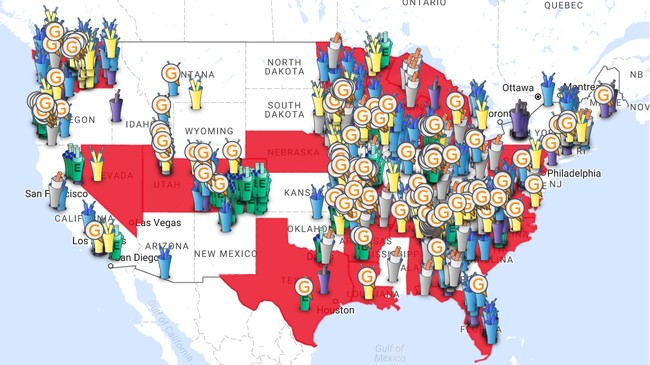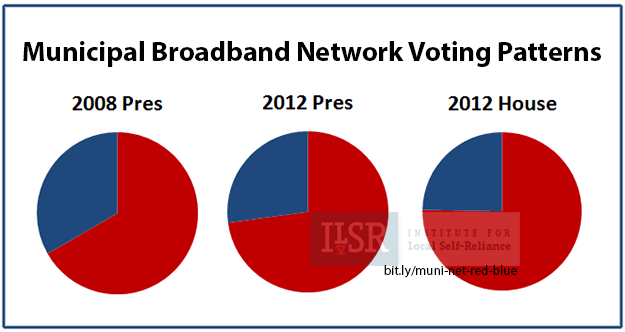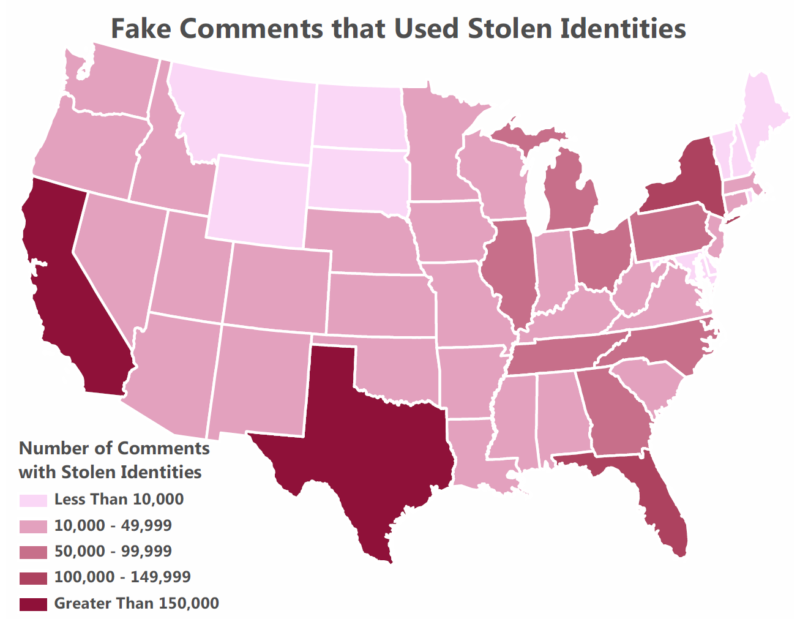It seems that one way to escape the tyranny of ISP’s is to build your own broadband network. In fact, more than 750 American communities have already done so. This map shows exactly which communities have done so.

(from motherboard.vice.com)
It seems that the only way to get fast, reliable internet in this country is to build it yourself, and that is just saddening to hear. However, it is a good sign that local communities are fighting back. These community broadband networks are significantly cheaper than those of the telecom giants that dominate the country, and interest in these community broadband networks has only grown after the Trump administration’s FCC’s attack on net neutrality.
Of course, these grass-roots efforts to protect fundamental consumer rights have only been met with the the utmost resistance and backlash from ISP’s, who are not afraid to rely on dirty tactics to do so. One example would be Fort Collins, Colorado, where Big Telecom spent 200,000 dollars on a campaign opposing the mere consideration of a community broadband network. (source) There have even been TV ads, believe it or not, and they are as out-of-touch and disingenuous as you might think.
The argument here is that the money from the bill could be spent on other things that are more important than the internet, such as infrastructure, affordable housing, and public safety. This argument doesn’t seem too invalid, until you remember how telecom industries wasted several billion dollars “developing” fiber-optic network infrastructure, not to mention spending hundreds of thousands of dollars campaigning against community broadband in a single city of 150,000 residents. This blatant hypocrisy is what makes their argument crumble to the ground.
That is not the only fatal flaw of this argument. Their point of spending money on infrastructure does not even work, since the cost of 150 million would be funded through utility bonds, which are unable to be spent on things like road repairs.
“The broadband budget is going to be funded 100 percent through subscriber fees,” Atkins noted. “If you don’t build the network, it doesn’t magically create $150 million to spend on something else.”
Traditionally, Big Telecom has painted the net neutrality issue and local broadband issue as bipartisan. For example, the repeal of net neutrality back in December was portrayed as an action of Trump’s administration, and thus it must have been supported by conservatives across the nation. This is in fact entirely false. The fact is that the communities that build their own networks are overwhelmingly conservative and vote republican. (source)

These pie charts from 2008 and 2012 paint a clear picture that municipal broadband and net neutrality are not bipartisan issues. People from both sides of the political spectrum support municipal broadband and net neutrality, thus any who oppose these things are simply acting out of pure greed.
However, there is a silver lining to this whole situation. It means that there is no good argument against local broadband networks, and Big Telecom can only rely on lies and deception to convince voters to oppose the idea. The only real downside to creating local broadband networks would be big telecom companies losing money, which is something they desperately do not want to experience. This is a good thing. Hundreds of cities and municipalities across the nation have successfully voted for and passed bills pushing forward the idea of local broadband, despite Big Telecom dishing out money to oppose it. Ideally, this means that people are beginning to realize that opposing local broadband brings zero benefit to them and only benefits Big Telecom. The people still have all the power, and the power of our democracy is the only thing that can bring these greedy giants down. Please vote for municipal broadband if you can. This is the only way we can stand up to Big Telecom.
The American Civil Liberties Union, or ACLU stated this in a report:
“Hundreds of cities, towns, and counties around the country have already turned to community broadband, often providing faster and cheaper service than for-profit telecoms. And, municipally-owned broadband providers can honor net neutrality and privacy values, regardless of what the FCC does or doesn’t do. With these public systems, communities can ensure that internet service is provided in an equitable way.” (source)
The most effective way we can stand up to the FCC and ISP’s is by boycotting them and creating our own internet services, because their stranglehold over the internet is simply immoral. To quote the ACLU:
“The internet has become a crucial utility, yet unlike water and electricity, quality broadband service in the U.S. is far from universal.”
Imagine if water and electricity were also controlled like the internet currently is. How barbaric of a world would that be.






